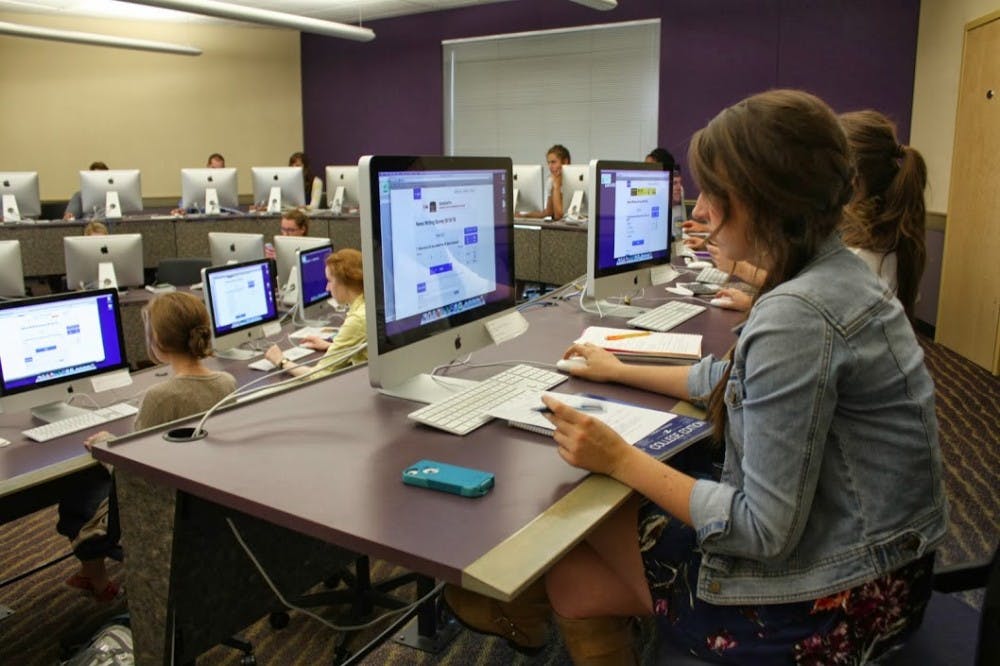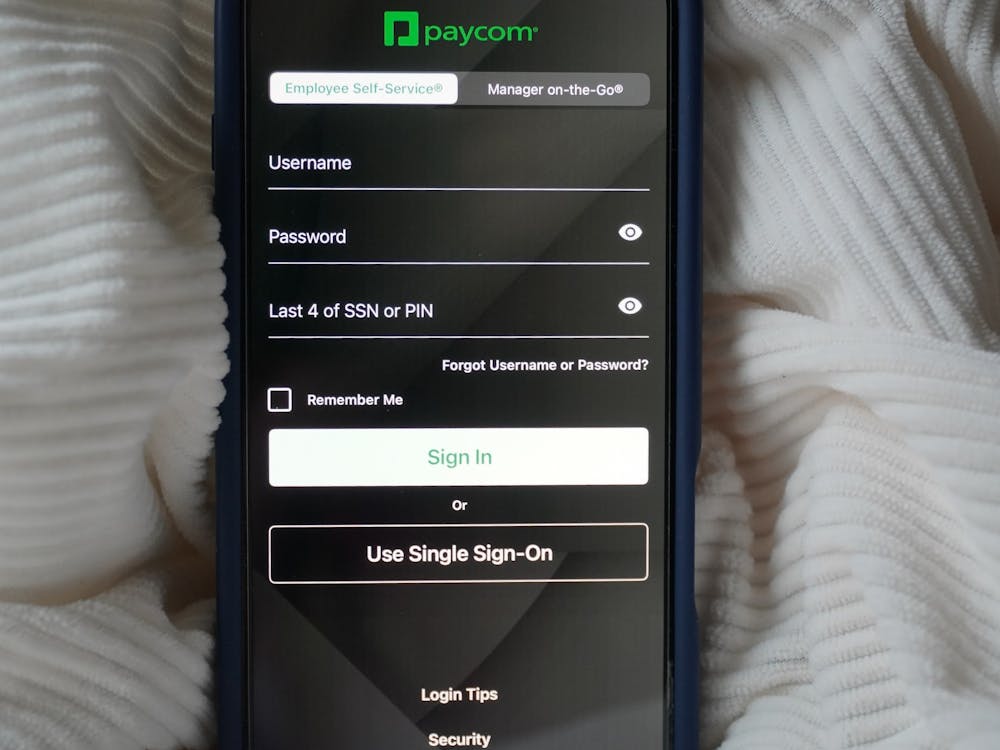Each semester before finals week, the University sends out online course evaluations for students to assess the quality of their learning experiences. These evaluations are used not only for professors’ planning purposes, but also to evaluate professors and determine promotions and tenure awards.
However, some professors say they find the evaluations, which are anonymous, problematic because of disingenuous responses and inappropriate comments they receive instead of actual feedback on how to improve their classes.
Faculty Welfare Committee Chair and professor of performing and fine arts Mindi Logan said the committee is in the process of talking to Provost Thomas Greene about including a disclaimer stating that if a student does not take a course evaluation seriously, it will be negated.
“I don’t think students realize how much we use their feedback,” Logan said. “They should be helping us do our job better, rather than making snide comments about how I did not wear make-up. In an institution of higher learning, you would think that students would know that.”
Several outside studies have shown that online course evaluations are not the best way to measure learning and receive feedback. One study focused on ratings being biased against female instructors, while another stated that there is zero correlation between evaluations and learning.
The Beacon interviewed seven professors: three males and four females. All of the male professors said that they did not have strong objections and were satisfied with the system. However, female professors disagreed and wished they could change the process.
While this was not a scientific sampling, it does suggest that UP professors’ perspectives may correlate with studies done elsewhere that conclude the online evaluation system is flawed by, among other things, gender bias.
Although there are students who have said that receiving a bad grade may impact their review, some students also said they consider their instructors to be good or bad professors based on their teaching competence, organization and knowledge of the subject.
“Usually, I evaluate teachers based on if they’re organized in class, or if they’re super accessible outside of class, or if they really help me understand the material,” junior biochemistry major Madeline Otto said.
Faculty members read summary reports of the evaluations at the end of the semester, and take into consideration the changes that should be made to improve future class planning. Additionally, due to the fact that evaluations are used in promotion and tenure decisions, professors feel some student responses unfairly impact the way these things are decided.
“The way the system works is that they expect you to improve, but the measurement is not really based on your quality of teaching, but more on how funny and engaging you are,” history professor Marla Doughty said.
In addition to students not taking the evaluations seriously, professors said that the rate of student responses has also gone down throughout the years since the evaluations switched from paper to electronic process.
“If we cannot get the participation to at least 80 percent, we are going to need to institute practices that will increase participation just as many other universities have done,” Greene said. “The Teaching and Scholarship Committee is also looking at other sources of evaluative data beyond student assessment such as peer observation and review.”
Additionally, some professors feel in-class paper evaluations produce more feedback and a higher student response rate. Some professors still hand out unofficial paper evaluations during classes for their own personal use.
“But since they’ve gone electronic, I’ve heard many incidences of inappropriate comments whether negative or positive,” Doughty said.
While students may take advantage of online assessment sites such as RateMyProfessor.com to find a “good” or “easy” professor, math professor Stephanie Salomone says she thinks being rated as “hard” doesn’t necessarily mean a student did not learn anything.
Similarly, computer science professor Tammy VanDeGrift said, “You can have a really fun and exciting class, but there may not be any learning happening. On the flip side, you could have a rigorous and challenging course and receive low evaluations, but students learn a lot.”
VanDeGrift also suggested that the University should allow alumni to provide feedback in tenure decision, because they now have the perspective of being in the workforce and can reflect back on their education.
“I do think that the perspective in the moment is different from the perspective upon reflection,” VanDeGrift said.
Mechanical engineering major Anthony Carvalho says he thinks it is more effective to allow students time to take course evaluations during class time.
“(Students) will be in the setting, in the mindset to critically evaluate the class rather than treating it like some anonymous social media,” Carvalho said.
Professors often remind students of the importance of doing course evaluations and taking them seriously and sincerely.
Some professors even encourage students to complete evaluations by offering cookies or other baked goods during finals week if they receive feedback from the entire class. Course evaluations for this semester will be open until 8:59 p.m. on Dec. 11.








